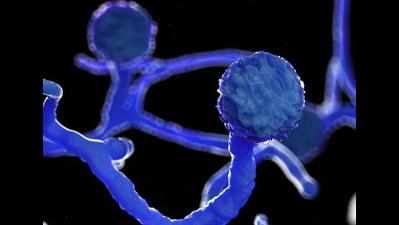- News
- City News
- mumbai News
- Mumbai, 4 other dists have 57% of state’s mucor cases
Trending
This story is from June 18, 2021
Mumbai, 4 other dists have 57% of state’s mucor cases

Representative Image
Five districts — Pune, Nagpur, Aurangabad, Mumbai and Nashik — have collectively recorded 57% of the state’s Covid-associated mucormycosis cases, shows the latest health department report (see box).
“Of the state’s 7,359 patients diagnosed with the invasive fungal infection, these five districts have recorded 4,238 patients in their urban and rural parts.That means 57% of the total cases are from these five districts, which were also among the worst-hit places during the Covid second surge,” said a senior state health official.
The Covid-associated mucormycosis cases have been registered across the state’s 35 districts. Some of the districts with the lowest number of cases are Buldhana (3), Palghar (9), Ratnagiri (10), Raigad (15), Washim (15), Hingoli (16) and Parbhani (18).
In view of the rising cases, the Maharashtra government has advised screening of a sizable chunk of hospitalised Covid patients for mucormycosis immediately before or after discharge. They include patients who had steroid and oxygen therapy, and stayed in intensive care units (ICU) for more than seven days.
The nationwide shortage of key anti-mucormycosis drug amphotericin B has badly affected the patients. “Pune district received only 12,838 vials of amphotericin B between May 20 and June 10 despite registering the highest number of Covid associated mucormyosis cases in the state,” said health activist Abhijit More.
The actual requirement — considering each patient needs a minimum of six vials every day for a minimum 21-day course — is 1.1 lakh vials for the 878 patients currently on treatment in the district. “How can doctors treat the patients when the key drug is not available in adequate numbers?” More asked.
ENT surgeon Samir Joshi of the state-run B J Medical College and Sassoon hospital said, “Amphotericin B, either conventional or liposomal, plays a pivotal role in arresting the spread of the deep-seated mucormycosis. Surgeries are only helpful in clearing the tissues which are already damaged.”
The Union government’s National Joint Task Force recently recommended that the injection posaconazole could be used in cases of non-availability of amphotericin B or in those patients having severe intolerance to amphotericin B in view of the nationwide shortage of the key drug.
“Of the state’s 7,359 patients diagnosed with the invasive fungal infection, these five districts have recorded 4,238 patients in their urban and rural parts.That means 57% of the total cases are from these five districts, which were also among the worst-hit places during the Covid second surge,” said a senior state health official.
The Covid-associated mucormycosis cases have been registered across the state’s 35 districts. Some of the districts with the lowest number of cases are Buldhana (3), Palghar (9), Ratnagiri (10), Raigad (15), Washim (15), Hingoli (16) and Parbhani (18).
In view of the rising cases, the Maharashtra government has advised screening of a sizable chunk of hospitalised Covid patients for mucormycosis immediately before or after discharge. They include patients who had steroid and oxygen therapy, and stayed in intensive care units (ICU) for more than seven days.
Admitted patients with high blood sugar (above 200 mg/dL or glycated haemoglobin [HbA1C] above 8) are also advised to be screened for the invasive fungal infection that primarily affects the sinuses. Patients given the anti-rheumatic drug tocilizumab are also included on the list of factors for early screening.
The nationwide shortage of key anti-mucormycosis drug amphotericin B has badly affected the patients. “Pune district received only 12,838 vials of amphotericin B between May 20 and June 10 despite registering the highest number of Covid associated mucormyosis cases in the state,” said health activist Abhijit More.
The actual requirement — considering each patient needs a minimum of six vials every day for a minimum 21-day course — is 1.1 lakh vials for the 878 patients currently on treatment in the district. “How can doctors treat the patients when the key drug is not available in adequate numbers?” More asked.
ENT surgeon Samir Joshi of the state-run B J Medical College and Sassoon hospital said, “Amphotericin B, either conventional or liposomal, plays a pivotal role in arresting the spread of the deep-seated mucormycosis. Surgeries are only helpful in clearing the tissues which are already damaged.”
The Union government’s National Joint Task Force recently recommended that the injection posaconazole could be used in cases of non-availability of amphotericin B or in those patients having severe intolerance to amphotericin B in view of the nationwide shortage of the key drug.
End of Article
FOLLOW US ON SOCIAL MEDIA











